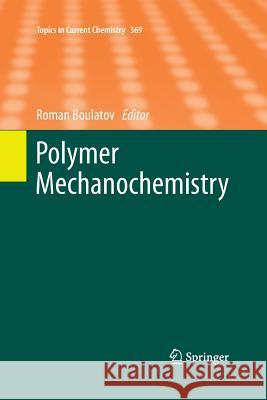Polymer Mechanochemistry » książka
topmenu
Polymer Mechanochemistry
ISBN-13: 9783319363226 / Angielski / Miękka / 2016 / 429 str.
Kategorie BISAC:
Wydawca:
Springer
Seria wydawnicza:
Język:
Angielski
ISBN-13:
9783319363226
Rok wydania:
2016
Wydanie:
Softcover Repri
Numer serii:
000073975
Ilość stron:
429
Waga:
0.62 kg
Wymiary:
23.39 x 15.6 x 2.31
Oprawa:
Miękka
Wolumenów:
01
Dodatkowe informacje:
Wydanie ilustrowane











